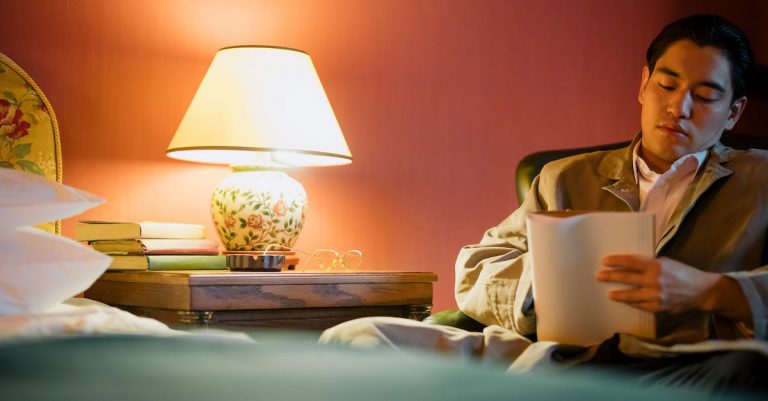As a parent, you may be wondering whether your child can stay in a hotel room alone. While there is no universal answer to this question, there are some important factors to consider.
If you’re short on time, here’s a quick answer to your question: It depends on the hotel’s policies and the minor’s age.
In this article, we’ll explore the different factors that determine whether minors can stay in hotels alone, including age restrictions, legal considerations, and hotel policies.
Age Restrictions for Minors in Hotels
If you’re planning on letting your minor child stay in a hotel room alone, there are a few things you need to know. While it’s technically possible for minors to stay in hotels, there are age restrictions in place to ensure their safety and security.
The legal age of majority varies by state
One of the most important things to keep in mind is that the legal age of majority varies by state.
In most states, this age is 18, but it can be as young as 17 or as old as 21. This means that if your child is under the age of majority in your state, they may not be able to legally enter into a contract, including a hotel room rental agreement.

Minors under 18 may require an adult to book the room
Even if your child is over the age of majority, some hotels may require an adult to book the room if the guest is under 18.
This is because hotels want to ensure that minors are not left alone without supervision. Some hotels may also require a credit card in the name of the adult booking the room to cover any incidentals.
Hotels may require a written consent form from parents or guardians
In addition to requiring an adult to book the room, some hotels may also require a written consent form from parents or guardians.
This form typically includes the name and contact information of the parent or guardian, as well as the name and age of the minor staying in the room. Some hotels may also require a copy of the parent or guardian’s ID.
It’s important to note that these requirements vary by hotel, so it’s always best to check with the hotel directly to understand their policies.
Additionally, it’s important to have an open and honest conversation with your child about the expectations and rules for their stay in the hotel room.
Legal Considerations for Minors in Hotels
It is common for parents to allow their children to stay in hotels alone, especially when traveling for school or sports events.
However, it is important to consider the legal implications of leaving minors unsupervised in a hotel room. In this article, we will discuss the legal considerations parents should be aware of when allowing their children to stay in hotels alone.

Criminal liability for damage or theft
Parents should be aware that minors can be held criminally liable for any damage or theft that occurs in a hotel room. This means that if a child damages hotel property or steals items from the room, they could face criminal charges and legal consequences.
It is important for parents to educate their children on the importance of respecting hotel property and not taking anything that does not belong to them.
Child welfare laws and mandatory reporting
In some states, child welfare laws require hotel staff to report any suspicion of child neglect or abuse. This means that if a hotel employee notices a child staying alone in a room, they may be required to report it to the authorities.
While this is done to ensure the safety and well-being of children, it can also lead to legal consequences for parents who leave their children unsupervised in a hotel room.
Liability waivers and indemnification clauses
Many hotels require parents to sign liability waivers and indemnification clauses when allowing their children to stay alone in a room. These documents protect the hotel from legal liability in the event of any injury or harm that occurs to the child while staying in the hotel. Parents should read these documents carefully and understand their legal implications before signing them.
It is important for parents to consider the legal implications of leaving minors unsupervised in hotels.
By understanding the criminal liability for damage or theft, child welfare laws and mandatory reporting, and liability waivers and indemnification clauses, parents can make informed decisions about allowing their children to stay in hotels alone.
Hotel Policies for Minors in Hotels
When planning a family vacation, parents need to consider the hotel policies regarding minors staying in hotel rooms alone. While some hotels allow minors to stay alone, others have strict policies regarding age restrictions and additional fees. Here’s what parents need to know before booking a hotel room for their unaccompanied minor.

Age restrictions for unaccompanied minors
Most hotels require that guests be at least 18 years old to book a room and stay alone. However, some hotels have higher age requirements, which can vary from 21 to 25 years old.
It is important to check the hotel’s age policy before booking to avoid any issues upon arrival. Additionally, some hotels require written permission from a parent or guardian for minors under 18 to stay alone.
Additional fees for extra occupants
Hotels often charge extra fees for additional occupants in a room, including minors. The fees can vary depending on the hotel, the age of the minor, and the number of occupants in the room.
It is essential to check the hotel’s policy on extra occupants and fees before booking a room. Some hotels may require an additional fee for minors under a certain age, while others may not charge any extra fees.
Limitations on room service and other amenities
Hotels may have limitations on room service and other amenities that could affect minors staying alone in a room.
For example, some hotels may not allow minors to order room service or access the hotel’s pool or gym facilities without adult supervision. It is crucial to check the hotel’s policies regarding amenities and room service before booking a room for an unaccompanied minor.
Tips for Parents of Minors in Hotels
Research hotel policies in advance
Before booking a hotel room for your child, it’s essential to research the hotel policies regarding minors.
Some hotels have specific rules regarding minors staying alone in rooms, while others prohibit minors from staying alone altogether. By doing your research in advance and understanding the hotel’s policies, you can ensure that your child’s stay is both safe and legal.
Consider alternative accommodations
If the hotel you had in mind has a policy prohibiting minors from staying alone, consider alternative accommodations.
For example, many hostels offer private rooms with shared common areas that may be more suitable for your child’s stay. It’s essential to consider the safety of alternative accommodations and to research reviews from other travelers before making a decision.
Discuss safety and behavior expectations with your child
Before leaving your child alone in a hotel room, it’s essential to have a conversation about safety and behavior expectations.
Discuss emergency procedures, such as what to do in case of a fire or medical emergency. Additionally, set clear rules regarding behavior and expectations for the room, such as no parties or strangers allowed. By having an open conversation with your child, you can ensure their safety and set clear expectations.
Conclusion
The decision to let your child stay in a hotel room alone ultimately depends on a variety of factors, including the minor’s age, the hotel’s policies, and legal considerations.
As a parent, it’s important to carefully consider these factors and weigh the risks and benefits of letting your child stay in a hotel alone.
By doing your research and taking necessary precautions, you can help ensure your child’s safety and well-being while traveling.






